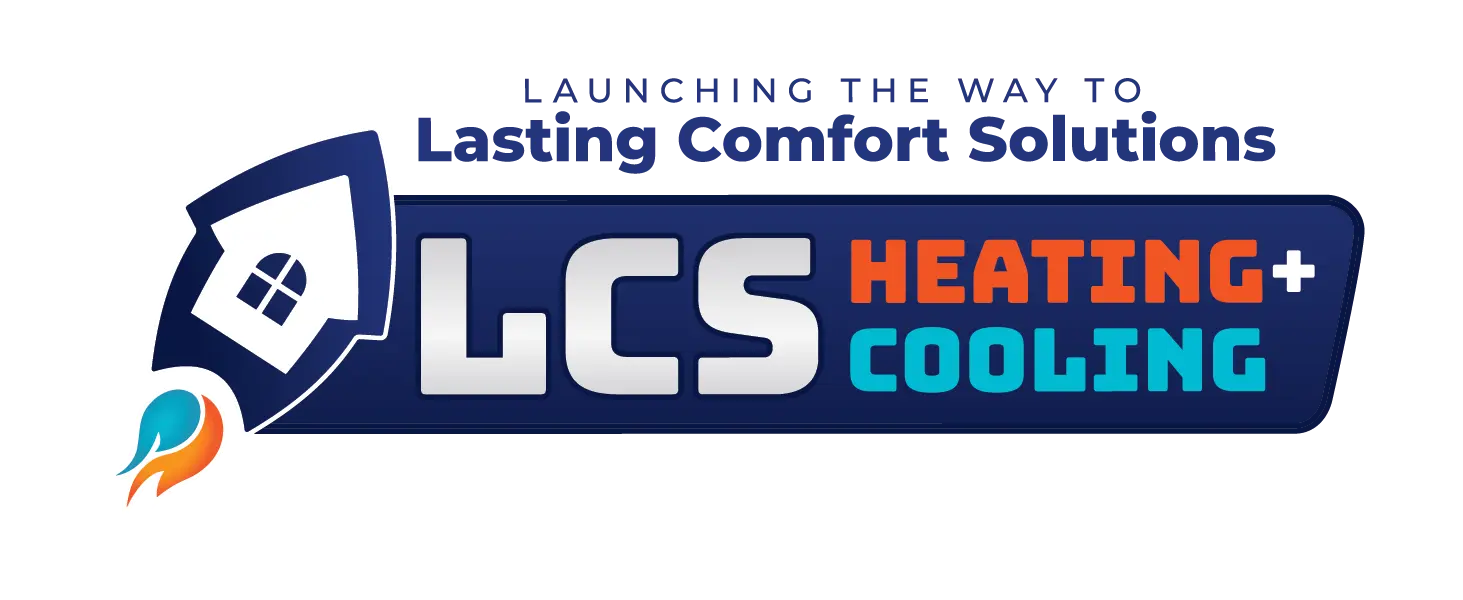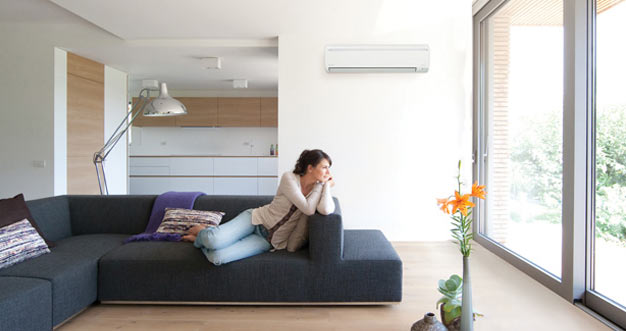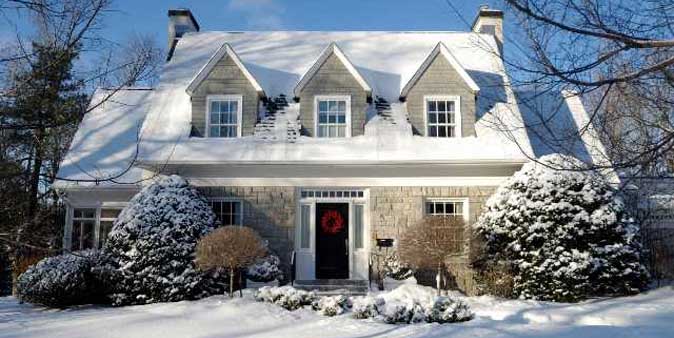The last thing on anyone's mind right now is HVAC. It's too warm to need the furnace and too cool to need the air conditioner. We do live in Indiana though so that can change in just 24 hours! We want to provide some tips for things you can do on your own to keep your furnace and air conditioner running at its best. We present the LCS Top Ten of Homeowner DIY HVAC Tips:
10. During cold or hot months, keep the programmable thermostat set within 3 degrees of each setting. A furnace and air conditioner will have to run for a very long time to make up the temperature difference. If you have an electric furnace
and heat pump, the electric furnace will come on as well to reach the set temperature. Since an electric furnace runs at a higher cost, it counters the savings that you might have had with the lower initial temperature.
9. Keep the weed eater and lawn mower away from the control wiring of the air conditioner. The wiring should not be hanging down but if it is, be careful when mowing and weed eating. It's not a high voltage wire but if it gets cut with a weed eater or mower, you can get shocked and it can take out the air conditioner. If the wiring is loose or hanging down, tie it up with electrical tape or have a technician tie it back when they're out doing annual maintenance.
8. If you are experiencing high utility bills, call the gas or electric company first. Ask the utility company if there's been an increase in the therm or electric rate. Ask if your bill compares to the average of others in your neighborhood. You can get great information about what your utility bill should be running. If there isn't a good reason for the higher bill, then it might be time to have a technician out to make sure the system is operating properly.
7. Move furniture away from registers. It's not uncommon to see a couch over a register or a bookcase pushed up against a register. Not only can the heat dry out your furniture but it also prevents the air from properly traveling throughout the rooms.
6. Keep registers open. A very common problem in two story homes is a temperature swing between the upstairs and downstairs. Homeowners try to fix this problem by closing registers upstairs or in some rooms. Keep the registers open. Closing registers can restrict air flow and cause the furnace to run hot. This can ultimately shorten the life of parts inside the furnace such as motors. It can also make the air conditioner freeze up by reducing the volume of air that the system needs to expel throughout the house. This is comparable to running the system with a dirty filter.
5. If you notice a noise, smell or problem, call on it right away. If you notice something unusual, don't ignore it. It's rare that an HVAC issue will go away or resolve itself. Noises and smells often mean that a part is getting weak or going out. A little critter could also have gotten inside. Address these issues before your furnace or air conditioner goes completely out. It's no fun being without heat on a cold day or without a/c when it's hot out!
4. Keep dogs away from the air conditioner. Animal urine will degrade the a/c fins. There's not much that can be done to fix the fins once this happens so it's best to make sure the fur babies stay away.
3. Replace the batteries in the thermostat. If the thermostat goes blank, check to see if there are batteries that need changed. Not all thermostats have batteries, but if it does, it's likely AA or AAA batteries that need changed.
2. Pick up leaves that are around the air conditioner or heat pump. Leaves, cottonwood, branches, etc can gather around the air conditioner. Keep these things cleaned away so the outdoor unit can breathe.
1. CHANGE THE FILTER! This is the number one thing to do to keep your furnace and air conditioner running efficiently! A dirty filter causes restricted air flow and can ultimately cause the system to stop working. If you have a 1" filter, check it once a month. If you have a 4-5" filter, check it every 3 months. It may not need to be changed at that time but it's good to check it to make sure. It's also a good idea to keep extra filters at the house. That way, you always have one on hand when it's time for it to be changed.
A couple of other tips are to caulk or re-caulk around windows and doors. It's also a great idea to check the insulation in your home. If you don't have at least 12-15" of insulation in the attic, you'll want to consider adding more!
Keeping up on these things can not only save you money but can save you from the inconvenience of being without heating or cooling during those hot and cold months. HVAC equipment is definitely an investment. Protect your investment by following our Top Ten tips!
April 23, 2015
Compared to some Indiana winters, we've been pretty lucky this year! Winter is still winter though and we're right in the middle of it. With a couple of cold months still left, the question should be asked: How's your home holding up? We'd like to share some customer HVAC questions we've had over the past month as well as provide some tips to protect your home against the harsh winter days.
Q: My furnace is running but it's not keeping the temperature that I have it set at.
A: Have you checked your filter? A dirty filter restricts air flow and can affect the operation of the furnace. During milder outdoor temperatures, a filter that's a little dirty may not affect anything at all. During colder outdoor temperatures, the same filter can cause the furnace to have to work harder and fall behind. Filters may have to be changed more often than usual during extreme outdoor temperatures.
Q: I usually keep my whole house humidifier set at 40% but I've recently noticed that my windows are sweating.
A: When outdoor temperatures get really cold, you may have to turn your humidifier down. Once the outdoor temperatures warm back up a little, you can turn it back to it's normal setting. When there's too much of a humidity difference between the outdoors and indoors, you may notice some sweating. It's a common misconception that the colder it is, the higher the humidifier should be turned up. The opposite is actually true. In addition, houses differ in how insulated they are (amount of insulation, leaky windows and doors, etc). Therefore, one house may notice window sweating at 30% and another at 40%. Adjust the humidistat up or down accordingly.
Q: Why is there ice on my heat pump?
A: There's not a cut and dry answer for this. A heat pump has a defrost cycle that it goes through to melt the ice under normal circumstances. If ice is there at one time and gone the next time you look, then it is likely operating normally and has gone through the defrost cycle. If you see ice for days on end, there's possibly a problem. It could be a number of things. Turn the heat pump off by taking the thermostat to emergency heat. That will help thaw the ice so it can be properly diagnosed.
Q: My electric bills are outrageous!
A: If you are all electric, our first question will always be: do you have a heat pump or air conditioner? An electric furnace running by itself to heat your home is very inefficient and expensive. If you have an air conditioner with electric furnace, it's worth considering replacing the air conditioner with a heat pump. If you do have a heat pump and still have unusually high electric bills, there could be a problem with the heat pump or furnace. The heat pump could be under-charged, it could not be going into defrost mode, a bank of heat in the electric furnace could be stuck on, etc. It would be worth having your equipment looked at if you feel like your utility bills are high.
Here are ten other tips that we have to prep your home for colder days to come:
*Have your furnace cleaned and tuned-up
*Test sump pump
*Caulk around windows and doors
*Remove hoses from outdoor spigots
*Check insulation in attic. It should be a minimum of 12 inches
*Check door thresholds for gaps
*Plug in carbon monoxide detectors if you have gas appliances (stove, furnace, water heater, etc)
*Reverse ceiling fans
*Have your fireplace, chimney and vents inspected to make sure all is in good condition
*Clean gutters
Feel free to reach out to us if you have any additional questions. Stay warm and cozy!
January 29, 2015
Tips For Staying Warm in Record Breaking Cold!
It's not often that we experience negative degree weather in Indiana! This weekend sure has been fun with all the snow and new temperature experiences! Well, fun unless your furnace goes out! Here are a few quick tips to make sure that you and your family are warm and cozy inside:
- Change the filter: In Indiana, furnaces are made to effectively run down to about 3 degrees outside. In temperatures below that, you may see that your furnace falls behind a little. To help the furnace out, make sure there is a clean filter inside. If the furnace is running on a dirty filter, it will have an even harder time keeping up.
- Don't change the temperature on the thermostat: Leave your thermostat at one temperature. For example, maybe you usually keep the temperature at 70 degrees during the day but 65 degrees at night. In this weather, it's going to be hard for your furnace to make up that 5 degree difference. Turn your thermostat to a temperature setting and leave it there. If you have a programmable thermostat, put a "hold" on the desired temperature so it's not fluctuating.
- Turn the thermostat to "Emergency Heat": If you have a heat pump and electric furnace, you'll see "auxiliary" heat show on your thermostat. This is because heat pumps are inefficient in extremely cold weather so the electric furnace also runs to supplement the heat pump. With temperatures below zero, the heat pump is not helping at all, so turn the thermostat to "emergency" heat. This will manually lock out the heat pump. The electric furnace will run by itself to heat your home. Just remember to turn the thermostat back to regular heat mode when outdoor temperatures warm up a bit. You don't want the electric furnace running by itself all of the time because of the cost to run it.
- Clear snow away from the heat pump: Clear away any snow drifts from the heat pump. The snow will restrict air flow and prevent the heat pump from operating properly. It may also prevent the heat pump from going into defrost mode, meaning the heat pump could ice up.
- If your furnace does quit, call right away: It will take no time at all for the temperature inside to drastically drop if your furnace happens to quit working. Call for HVAC help right away! There are a lot of homes without heat so it may be a few hours before a technician will be at your door anyway. A delay in calling will only increase that wait time.
Feel free to contact us if you have any questions regarding your HVAC equipment! Keep an eye on our Facebook page as well for other tips and posts.
Annual Maintenance: Why Not Just Do It All at Once?
Next to keeping a clean filter installed in your HVAC system, annual maintenance is the most cost-effective way to ensure that your furnace and air conditioner are running as efficiently as possible. Our Energy Savings Plan is a preventative maintenance plan in which the air conditioner is cleaned and tuned in the spring or summer and the same is done on the furnace in the fall or winter. Maintenance is much more than just spraying out the air conditioner or vacuuming the inside of the furnace. All of the components, wiring, motors and refrigerant levels are checked during the tune-up. Hopefully, everything will be in proper ranges. If there is an issue, we can bring it to your attention and discuss any options so you can determine how you'd like to handle it.
While maintenance will not guarantee that parts won't go bad on the furnace or air conditioner, problems may be found before they cause issues. For example, a motor may have higher than usual readings or a part may be making a louder than normal noise. Catching these things before they actually go out will not only save you a service call fee but will also keep you from being without air conditioning on a hot day!
We are occasionally asked: Why do you come out twice a year? Why not just do the furnace and air conditioner maintenance all at once? While it's important that the maintenance is completed at some point each year, it's preferred to complete the cleaning and tune-up just before or during the season that it'll actually be used. That also means that we'll be checking the filter for you twice a year and completing maintenance on other items such as humidifiers just before they'll be used as well. By seeing a technician twice a year, we can ensure that all of your questions or concerns are answered about your system so that it's running as well as it can all year long.
For more information, additional benefits and pricing on our Energy Savings Plan, please click here.
Indoor Air Quality- Reducing Allergens In Your Home
Spring has sprung! The birds are singing, the grass is green and the pollen count is high! There's not much that can be done to control the outdoors but what about the air inside your home? Is it possible to improve the air quality in your home to control allergens? You bet! We have a few suggestions and tips:
- Regularly change your filter. A good filter reduces allergens such as dust mites and pet dander. Filters may be fiberglass or pleated and range in size from 1" to 5". Filters also have a rating system called Merv Rating which determines the effectiveness of a filter. The smallest particles are captured with filters with a high Merv rating. A Merv 16, for example, will allow fewer particles to pass through than a Merv 10. It may be worthwhile to look into a media cabinet or a better filtration system for your home to reduce allergens.
- Close the windows and turn on the air conditioner. The air conditioner naturally dehumidifies the house, creating a cool, dry air. Allergens such as mold and dust mites tend to thrive in warm, humid spaces so running the air conditioner can help to keep allergens under control.
- Control the humidity in the house. If humidity levels are still high , it might be time to consider a dehumidifier. Dehumidifiers pull excess humidity out of the air, creating a cool and dry environment.
- Consider a UV Light. UV Lights are effective in controlling airborne allergens, mold, mildew, viruses and bacteria. UV air cleaners break down these allergens and dramatically improve indoor air quality.
Indoor air quality is an important topic! There are many things that can be done to reduce the allergens and improve air quality. Feel free to contact us for recommendations in your home!


